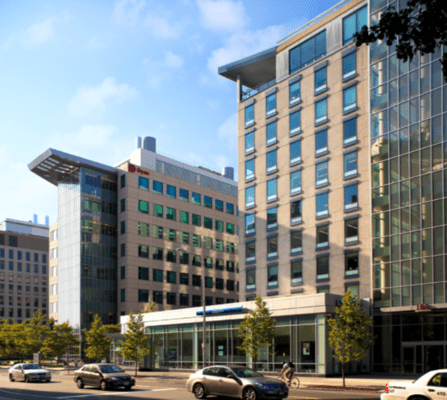Parking and traffic congestion are long-time sources of frustration for drivers, employers, and elected officials in cities across the country. This is particularly true in Greater Boston, which— according to a study conducted by the analytics firm, INRIX— recently topped a list of the nation’s most congested cities for the second year in a row. For this reason, “smart parking” services have become top of mind among the driving public, government leaders, and the business community and are now routinely incorporated into development and infrastructure projects.
The need for smart parking options is especially crucial now as public transit, for so long seen as the most obvious solution to the region’s traffic woes, is projecting low ridership for months on end, a byproduct of COVID-19’s impact on public health.
With its tight streets and densely populated neighborhoods, Cambridge is well known for its strict enforcement of parking regulations. Given this perennial problem, JM Electrical was pleased to install innovative parking guidance software, which allows commuters to avoid mass transit and help de-congest city streets while also maintaining a safe distance during this period of uncertainty.
Take, for example, Technology Square, or “Tech Square,” a commercial office building complex that resides in Cambridge’s Kendall Square neighborhood, adjacent to the mile-long Massachusetts Institute of Technology (MIT) campus. Jointly developed by Cabot, Cabot & Forbes (CCF), and MIT on a 14-acre site, previously the location of a tenement and a soap factory, Tech Square long functioned as an epicenter in the global evolution of computing and technology, with high profile tenants including Polaroid and IBM. The building, adjacent to Draper Labs, continues to play an important role in the area.
Within the Tech Square garage, JM installed six ultrasonic directional sensor signs on the top of each ramp that counts the cars entering and leaving the floor. As a result, drivers can now pull into the 1,656 car garage, greeted by a five-foot sign announcing the number of available spots on every level. Additional, multi-colored LED signage on each floor lets drivers know if parking spaces are occupied or available.

As part of the project, JME also installed 32 individual space sensors on the first floor, including spots featuring charging stations that are reserved for electric vehicles. The company also mounted panels on each floor where signs and space sensors on each level are wired, connecting a network cable to the main office which sends real-time information via signals to the master sign located at the garage’s entrance.
Until a vaccine is widely available, Boston commuters will likely drive more and use public transit and ride-sharing services less. For densely populated regions like Greater Boston, and tech centers like Kendall Square, exploring new systems to accommodate the presence of cars will become more commonplace. Ultrasonic technology including parking guidance systems can quickly calculate exact occupancy and availability, saving frazzled drivers precious time. By installing infrastructure that encourages pre-booking, online payments, and easy navigation, our area’s parking experience can meet the 21st century and streamline the way our workforce gets back to business.
